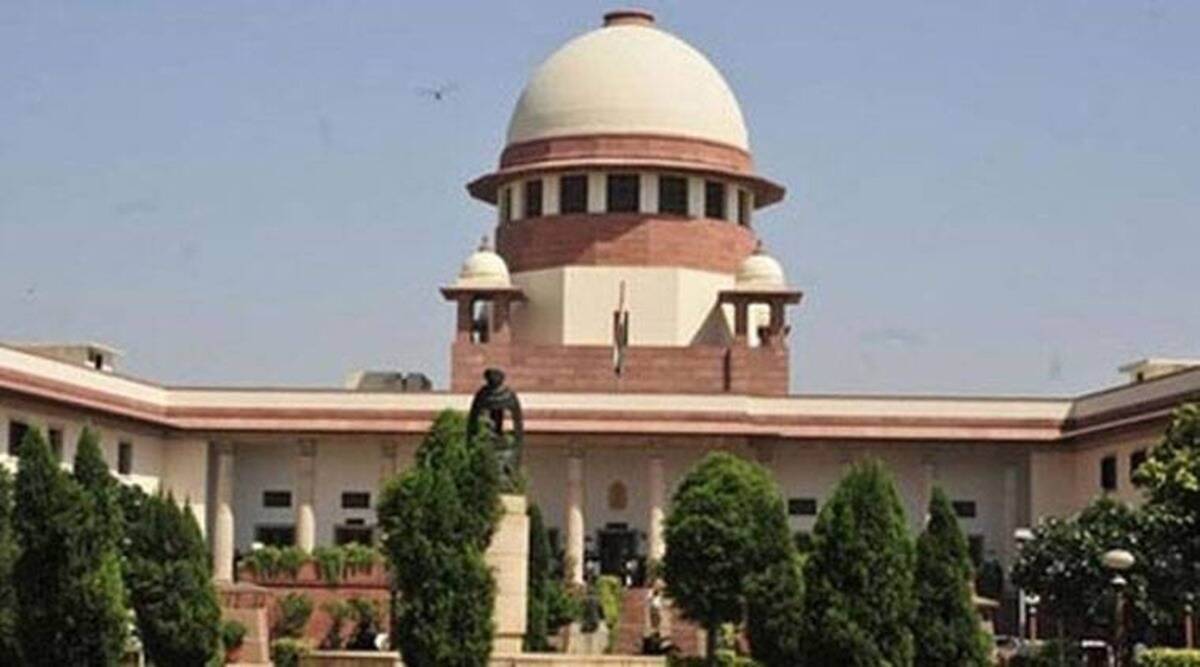‘We’ll hear it’: Supreme Court on ongoing pleas challenging voter bond system
The Supreme Court on Tuesday agreed to hear a pending plea challenging the Centre’s Election Bond Scheme, 2018. India’s Chief Justice NV Ramana told lawyer Prashant Bhushan, who mentioned the issue, that the court would have heard it earlier, but for Covid-19. “We will hear it,” the CJI said.
Seeking an urgent hearing, Bhushan said there was news that a firm in Kolkata had paid Rs 40 crore to avoid a raid. “It’s distorting democracy,” he argued.
The Supreme Court is seized of petitions filed by two NGOs – Common Cause and Association for Democratic Reforms (ADR) – contesting the project.
In March 2021, the SC had denied ADR’s request to suspend any further sales of election bonds while an earlier petition it had filed against the scheme was pending. Disputing the NGO’s claims regarding the “complete anonymity” of bond buyers, the court said that “it is not as if operations under the scheme are behind iron curtains unable to be pierced”.
The court pointed out that the bonds had already been issued in the past – in 2018, 2019 and 2020 – “without any impediment” and that it had already ordered “certain guarantees” by interim order on April 12, 2019.
In its April 2019 interim order, which also came at the request of the ADR, the Supreme Court had ordered political parties that had received donations through campaign bonds to “immediately” submit details of those donations. obligations to the Election Commission of India (ECI). This order also came on the motion filed by the ADR in September 2017.
However, the NGO went to court again, arguing that the identity of the donors could never be known to the public. He also referred to the reservations issued by the Reserve Bank of India (RBI) and ECI towards the program.
On the NGO’s arguments regarding anonymity, the court said: “Despite the fact that the system provides anonymity, the system aims to ensure that everything happens only through banking channels. Although the identity of the bond buyer is not disclosed, it is ensured that unidentified/unidentifiable persons cannot purchase the bonds and donate them to political parties. Under clause 7 of the program, buyers must submit an application in the prescribed form, either physically or online, disclosing the details specified therein. Although the information provided by the buyer will be treated as confidential by the authorized bank and will not be disclosed to any authority for any purpose, it is subject to an exception, namely when requested by a competent court or when registering a criminal case by any law enforcement. agency. A non-KYC compliant application or an application that does not meet the program requirements will be rejected. »
The Supreme Court bench also referred to the electoral commission receiving details of the contributions received in the form of bonds, in accordance with its April 2019 order, and said: “We do not know at this stage in what extent the allegation that under the scheme there would be complete anonymity in corporate funding of political parties, both in India and abroad, is enduring”.
“If the purchase of bonds as well as their cashing could only be done through banking channels and if the purchase of bonds is only allowed to customers who meet KYC standards, the information about the buyer will certainly be available from the SBI, which alone is authorized to issue and encash bonds in accordance with the Scheme, and any expense incurred by anyone in purchasing bonds through banking channels shall be recorded as an expense in its books of account. The trial balance, cash flow statement, profit and loss account and balance sheet of companies that purchase campaign bonds will necessarily reflect the amount spent as expenses in the purchase of campaign bonds,” said pointed out the bench.
“Additionally, under the Companies Act 2013, each company is mandated to prepare and maintain books of accounts and financial statements for each financial year and these statements must be placed at each annual general meeting and then filed with the Registrar of Companies which in turn is accessible online at the Department of Corporate Affairs website for any person or obtained in physical form from the Registrar of Companies upon payment of prescribed fees,” the Supreme Court said.
The bench added: “Given that the scheme requires political parties to file statements of audited accounts and also since the Companies Act requires financial statements of registered companies to be filed with the Registrar of Companies, the purchase as well that the encashment of bonds only occur through banking channels, is still reflected in the documents that eventually fall into the public domain”.
“All it takes is a little more effort to extract this information from both sides (the bond buyer and the political party) and make some ‘matches with what follows’. Therefore, it is not as if operations under the regime are behind iron curtains unable to be breached,” the court said.
On the objections of the RBI and the EC, the tribunal said: “It is true, as the correspondence shows, that the RBI has expressed certain reservations. But it is not correct to say that the RBI and the Election Commission of India opposed the electoral bond system itself.


Comments are closed.